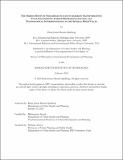The Hidden Roots of Neoliberal Success in Agrarian Transformation: State Engagement, Farmer Professionalization, and Technological Interdependence in the Senegal River Valley
Author(s)
Spielberg, Brian Jonars Besana
DownloadThesis PDF (2.880Mb)
Advisor
Sanyal, Bishwapriya
Terms of use
Metadata
Show full item recordAbstract
Recent scholarship celebrates irrigated rice in the Senegal River Valley (SRV) as a success story. This is remarkable considering the SRV’s history of agrarian transformation, which critics characterize as incoherent, erratic, and self-destructive. How did this turnaround happen? How did good seeds emerge from bad soil? Conventional explanations point to enlightened market-based reforms and technological upgrading following state withdrawal from most agricultural activities. In other words, the SRV is portrayed as a triumph of neoliberalization. This dissertation offers an alternative, additive view. In Paper 1, I situate the SRV’s transformation in broad historical context, showing how notions of development, technological change, and poverty alleviation have evolved and the implications for what strategies are pursued. I illustrate how a popular contemporary development model— appropriate technology (AT) 2.0, an evolution of Schumacher’s 1970s AT 1.0—that valorizes smallscale technologies and market-led interventions is attractive in explaining successes like the SRV, even as it proves ultimately reductive. In Paper 2, I demonstrate how the state, despite policies curtailing its activities and a dominant narrative asserting its disengagement, continues to play an active role in the SRV. By imparting practical skills, such as pump operation, contract negotiation, and bookkeeping, state action helped farmers professionalize. A durable effect is a “we’re in this together” state-farmer mentality. When this relationship is tested, well-respected intermediaries, often religious leaders, intercede. In Paper 3, I show how farmers construct assemblages of resources, skills, and knowledge to achieve their goals. They rely on negotiation skills and social ties with local leaders, appealing to “public interest” couched in religious terms. In forsaking key aspects of the dominant assemblage to pursue alternatives, farmers exercise their agency and enhance market functioning by permitting flexibility, acknowledging technological interdependencies, and mitigating recurrent risks. This dissertation offers hope that successful agrarian development is possible in challenging, resource-constrained environments. Based on 11 months of fieldwork, I show how state and farmer actions bolstered market reforms, underpinning their success. In centering on-the-ground realities, I move beyond dominant explanations and neat theoretical classifications to reveal underreported but nonetheless fundamental processes and mechanisms through which development occurs.
Date issued
2025-02Department
Massachusetts Institute of Technology. Department of Urban Studies and PlanningPublisher
Massachusetts Institute of Technology